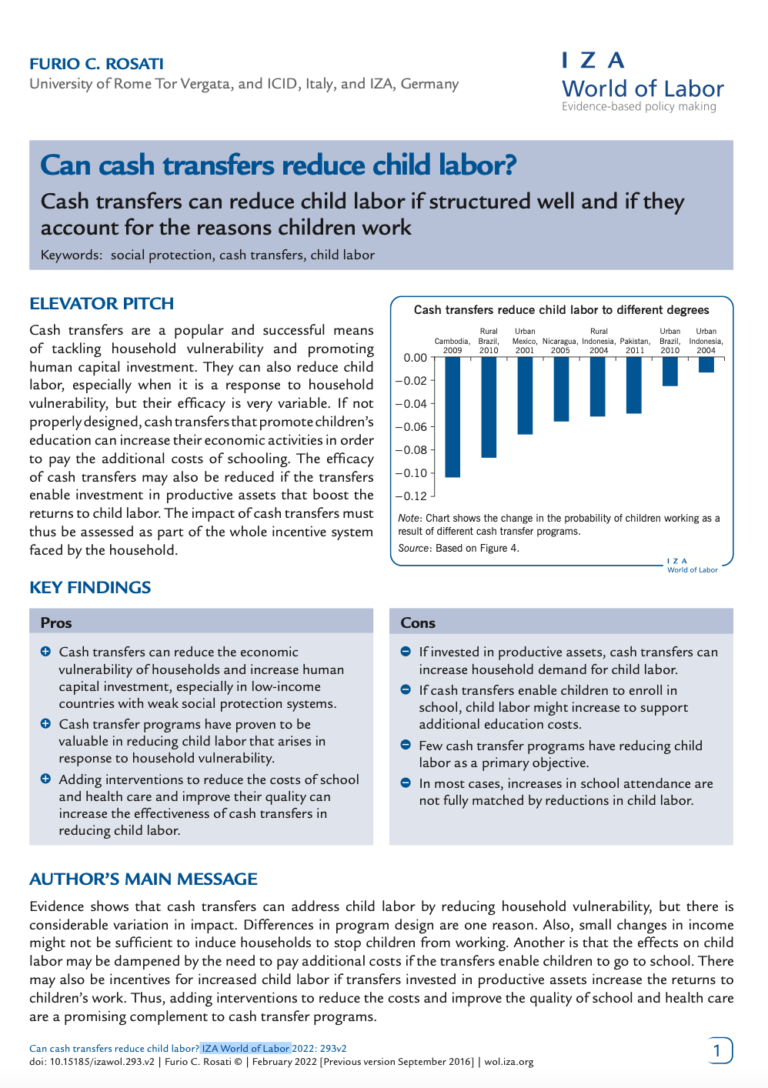Cash transfers are a popular and successful means of tackling household vulnerability and promoting human capital investment. They can also reduce child labor, especially when it is a response to household vulnerability, but their efficacy is very variable. If not properly designed, cash transfers that promote children’s education can increase their economic activities in order to pay the additional costs of schooling. The efficacy of cash transfers may also be reduced if the transfers enable investment in productive assets that boost the returns to child labor. The impact of cash transfers must thus be assessed as part of the whole incentive system faced by the household.

